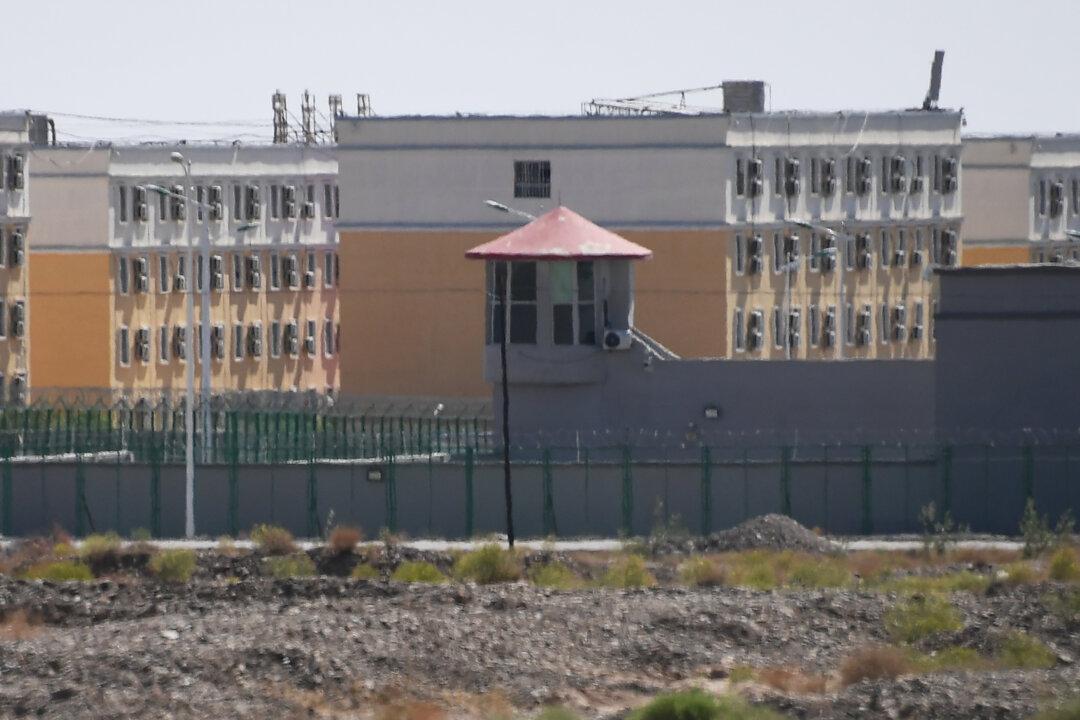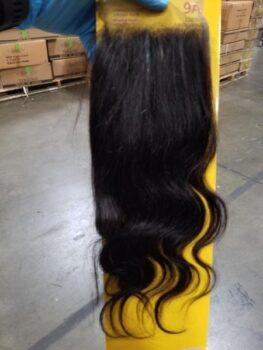
Survivors, investigators, and Uyghur activist groups have said the seized hair comes from women held inside various concentration and labor camps in Xinjiang, and for the first time, U.S. authorities have a strong piece of evidence in hand for further investigation into the persecution of the Muslim minority group.
Investigative journalist Ethan Gutmann, who visited various camp survivors in Turkey and Kazakhstan, recently told The Epoch Times in an email: “My back-of-the-envelope calculation is that this shipment represents the hair of approximately 90,000 women, incarcerated in ’re-education camps.‘ Although this sort of long, exotic hair—deep chestnut browns, red highlights—are usually identified in Chinese catalogs with the euphemism ’Mongolian,' the hair is shaved from the heads of Uyghur, Kazakh, Kyrgyz, and Hui women.”
The U.S. government has taken a series of actions to respond to the repression in Xinjiang.
Most recently, on July 20, the Commerce Department added 11 Chinese companies implicated in abuses in Xinjiang, including the Hetian Haolin Hair Accessories Co. Ltd., to its entity list. This list is a tool to restrict the export, reexport, and transfer of products subjected to export regulations by those persons or companies involved in activities that threaten the national security or the foreign policy interests of the United States.
Inside Concentration Camps
Gulbakhar Jalilova, a citizen of Kazakhstan and a survivor of the Xinjiang concentration camps, was a trader and often visited Urumchi, the capital of the Xinjiang Autonomous Region, to purchase clothes. She was arrested in 2017 from her hotel for what the Chinese authorities wrote in her trial document as “abetting terrorist activities.”
The mother of four was lodged inside a six-meter-square space for 465 days with many other women who were daily given unknown drugs. One of the first things the camp authorities did when these women arrived in the camp was cut their hair, which was done regularly for those staying in the camp for longer periods.
Jalilova spoke recently with The Epoch Times. She had met investigative journalist Gutmann in Istanbul in Turkey in October 2019. Jalilova reenacted for Gutmann how inmates would be taken to a hole in the wall—their hands cuffed in the front—while an unseen person would cut their hair from the other side of the wall.
Gutmann described what the survivors he met told him happened once they arrived in the camp.
“It was practically universal. Entering the camp, the women were forced to line up in front of a hole in the wall. When it was your turn, you were forced to stick your head through the hole while an unseen hand sheared your head with a clipper—as one woman said, like an animal,” Gutmann said.
Long hair is considered a matter of honor for women in traditional Uyghur culture.
Another concentration camp survivor, Mihrigul Tursun, 30, who testified before the U.S. Congress in November 2018, was detained three times, once in a prison and twice in a concentration camp, for a total of 11 months over two years, from 2015 to 2017. She told The Epoch Times that three days after she arrived in prison the first time, the hair of all 50 inmates in her cell was cut. Almost all of them had long, braided hair.
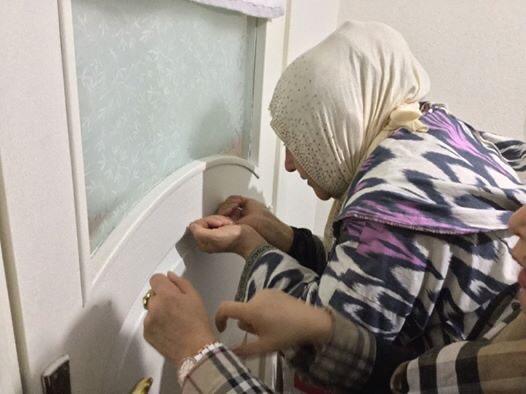
“Everyone was depressed, emotionally shocked. They felt helpless and hopeless. They felt dishonored. Even if it didn’t hurt them physically, it hurt them mentally, emotionally, and spiritually,” said Tursun, adding that she had waist-long hair when she entered the prison.
Tursun has happy memories of her mother braiding her long hair until she was 15. She fondly remembers the many long-hair competitions in her school and said there are 12 to 15 kinds of braids and many hair accessories Uyghur woman use.
Elfidar Hanim, secretary of the Uyghur American Association, told The Epoch Times that this importance given to growing long hair has been used by Chinese authorities, who are using hair from inmates in labor and concentration camps to make money.
The 13-ton shipment manufactured by the Lop County Meixin Hair Product Co. Ltd. that CBP seized on July 1, is valued at $800,000. Hanim said this business has been going on for years.
“China has been doing this business for a while, but these hair products were never caught. This time it happened because there’s more awareness about the matter and also because Radio Free Asia recently reported about it,” she said.
Tip of the Iceberg
Gutmann and Hanim said the hair products are evidence of only one aspect of a broad array of serious human rights violations.“Yet this is simply the tip of the iceberg. Go deeper and you will find evidence of forced labor, sexual slavery, and forced sterilization. The greatest amount of lives—I estimate over 10,000 women per year, at a minimum—are lost to live organ harvesting. When Western women use Chinese beauty products containing collagen, they are inadvertently rubbing the remnants of the latter group into their faces,” Gutmann wrote.
Hanim said the Uyghurs inside these concentration camps are subjected to forced organ harvesting, forced sterilization, and used as “guinea pigs” for medical testing.
“Not only that, now they are using Uyghurs piece by piece for making money out of it, marketing whatever they could get,” said Hanim, who compared these stories to those coming from the Nazi concentration camps.
The former inmates Tursun and Jalilova spoke about inmates being subjected to blood tests and pregnancy tests. Pregnant women were forced to abort. They also recounted being given unknown medicines every day. They said these drugs stopped menstruation in young women. Jalilova said the drugs were given to them to keep them quiet. They didn’t feel pain or hunger.
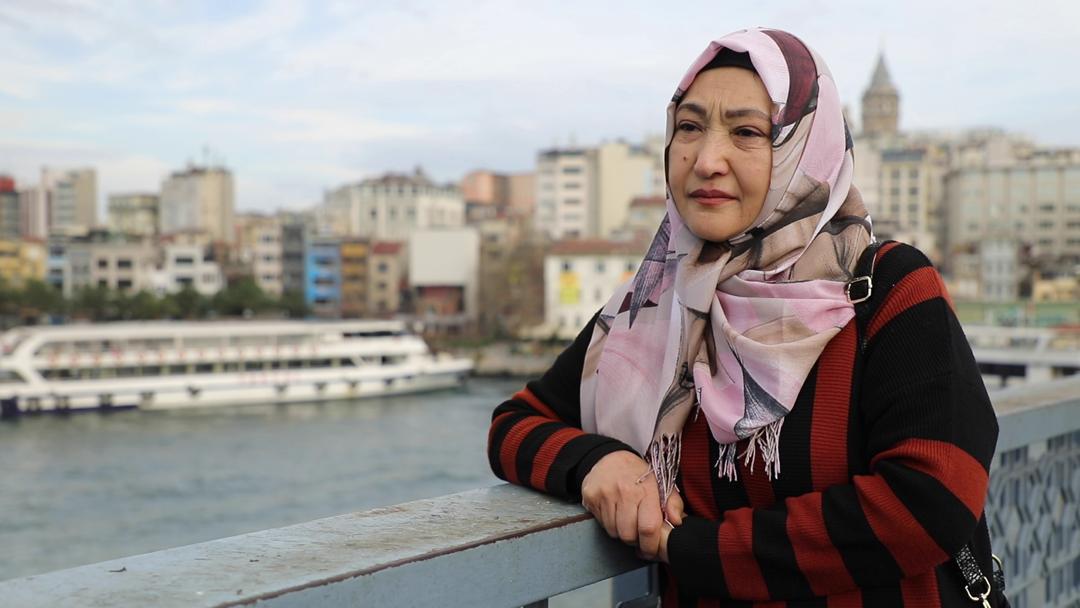
DNA Testing
Gutmann and Hanim said the seizure of human hair from Xinjiang by CBP gives the United States an opportunity to investigate the issue further as now they have a concrete piece of evidence.“U.S. Customs is apparently going to test the DNA, presumably to establish that the hair is Uyghur or Kazakh in origin, rather than Han Chinese. But that does not go far enough. Beijing has unwittingly given us physical evidence of a crime,” Gutmann said.
Hanim said it’s a difficult piece of evidence to establish because it’s easier to do DNA testing if hair roots are intact, and these hair products don’t have them. She said, however, the CBP shouldn’t return this shipment to the Chinese if the evidence isn’t established.
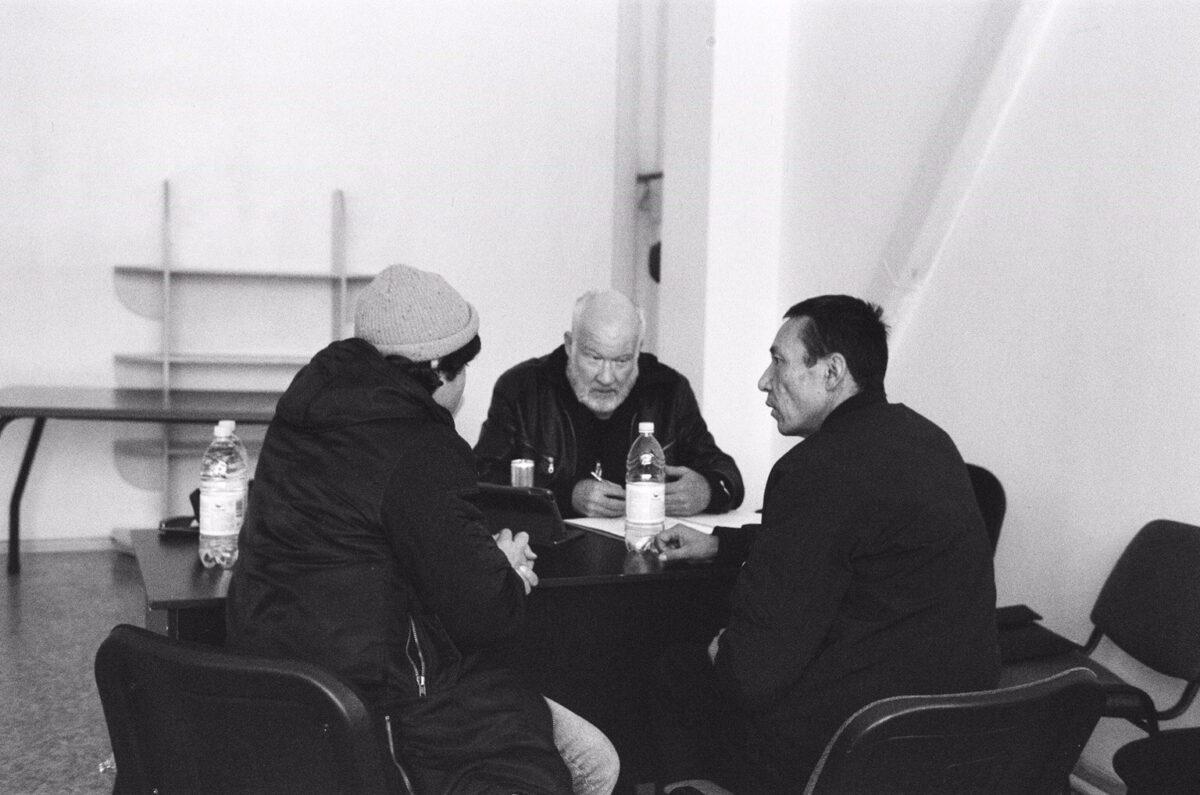
“Also, we would like them to destroy the hair or keep it instead of giving it back to China because they are going to resell to other countries; they are going to resell to poor countries. And also China will find a way to remarket, in the future. They might give a different name and may transfer for different regions or even label it as Indian hair,” Hanim said.
She said the United States should advocate to other Western countries to not buy products coming from forced labor or from the concentration camps in Xinjiang.
